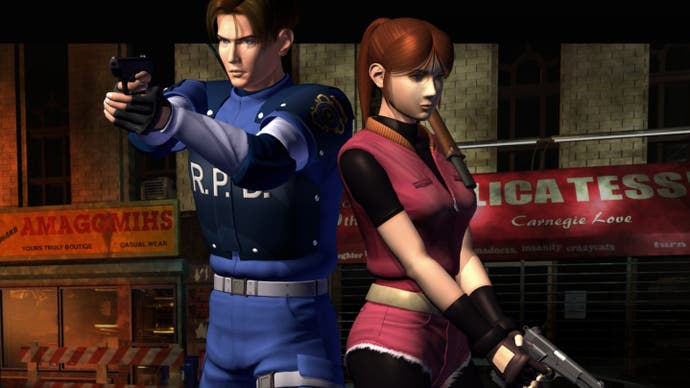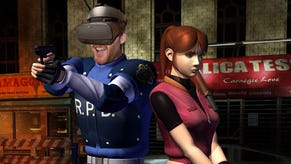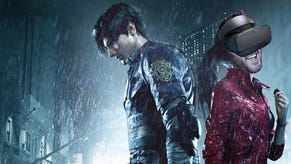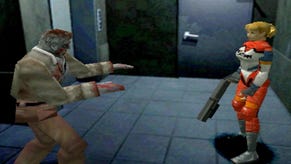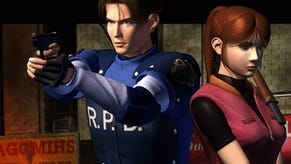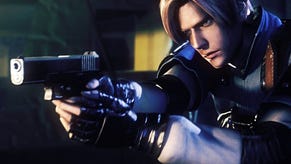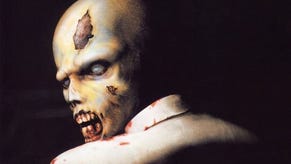25 years on, Resident Evil 2 still feels relevant - personally and on a wider scale
Back to Raccoon City.
It feels strange to mark the passage of time by how other things age. Illness, and the routines it enforces, make time irrelevant to me, and yet one can't help but be aware of how much time is lost. It makes for a complex relationship with time in which external reminders of its passing can be equal amounts helpful, depressing, or, as is the case with Resident Evil 2, surprising.
Resident Evil 2 is 25 years old. It's hard to imagine so major an entry in a medium intrinsic to our modern lives is the same age as Dawson's Creek and Young Hercules (fun Google for Ryan Gosling fans). How is it that it released the same year assembly of the International Space Station began?
It's been a quarter of a century since I first came across Resident Evil 2 in issue 67 of GamesMaster, since I marvelled at the multi-page review splashed with 3D models, showing off guns, zombies, and gore. It was the kind of forbidden game I craved. It was a game other children, with more permissive childhoods, could get, but not me.
Or so I thought. It's also 25 years since I walked into GAME with my family and, ignorant of what the game contained, my father persuaded a clerk to cut the N64 port from a clingfilmed, DIY console bundle. A rare memory from childhood that has vividly stuck with me as cognitive issues render me unable to recall much of last week.
25 years on, however, Resident Evil 2 remains a strange beast, far removed from the Resident Evil we know today. A confused development, first in the departures of Tokuro Fujiwara and Kenichi Iwao, and then Shinji Mikami moving to producing the sequel rather than directing, somehow solidified it into one of survival horror's most enduring titles.
We celebrate the game's predecessor, Resident Evil, as a remarkable moment in gaming history, one that spawned countless imitators and influenced much of the horror landscape we see today. We laud it as one of gaming's greatest achievements much as we celebrate Apollo 11 as one of humanity's. (An apt comparison given neither landing was perfect; Apollo 11 missed its mark on the 20th July 1969, and much of what made Resident Evil novel now looks silly. Resident Evil was a good game, but sometimes it was good because it was bad.)
Though we often forget, later in 1969, Pete Conrad, Dick Gorden, and Alan Bean took Apollo 12 to the moon and proved NASA could do it all again and better. Resident Evil 2 proved Capcom could do it better. Toned down were the clunky voice acting, the story was more cohesive and relatable, and the characters' motivations more interesting.
While the original Resident Evil is somewhat overshadowed by its GameCube remake, Resident Evil 2 remains its own entity - removed, even, from its own 2019 remake. That said, it's an entity that belongs to a distant past, one in which we still worried about BSE and human cloning, and in which pushing statues around a room to unlock a jewel didn't need explanation. This was a world where the idea of purposefully infecting one's self with a virus was ridiculous, not the rallying cry of right-wing loons. One hesitates to call it a better time, but it was simpler.
Looking back, I should find Resident Evil 2, with its denim-decked protagonist and puzzle-laden police station, just as silly as its predecessor. But I don't. I relate. Even now, in an era where horror is so often about cheap shocks, Resident Evil 2 stands out.
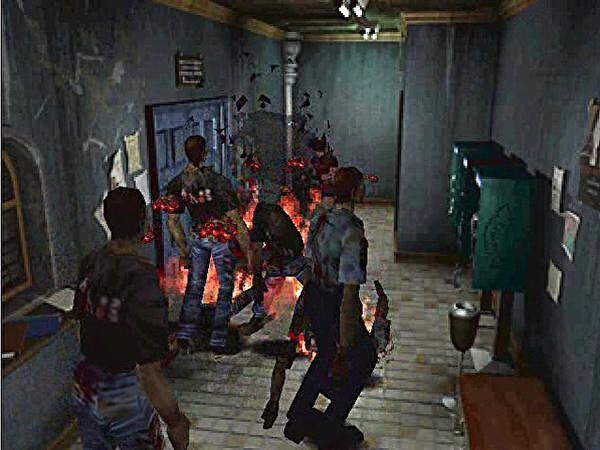
Sure, moments like decomposing hands bursting through boarded-up windows or a Licker diving through a one-way mirror stick in the mind. But more so, it's the tight, limiting corridors of Resident Evil 2 that were the real vehicles of fear. Fear of the unknown, something to which we can all relate. Clumsily traversing Resident Evil 2's four scenarios was to constantly question what lurked at the borders of its static backgrounds and uncanny camera angles. As a child, locked in small worlds - a bedroom, a house, a street, a school - it all felt so easy to escape into the game's world.
Later games may have given more freedom to see their environments; their perspective growing as mine did the same. But now locked in the impenetrable little boxes of disability, I once again find the tight confines of Resident Evil 2 frighteningly relatable. The game froze you in time and asked you not to fight, but to survive. You're stuck in one place and hoping to make it through.
Somehow, though 25 years have passed, so much remains the same in the world. That's probably not a good thing. But I've long held that history often repeats itself and as games get bigger, give in to homogeny, and try to last forever through live service models, the closed circuit of Resident Evil 2 still feels more enduring. Within it I can still see the horrors of my own life.
Perhaps that's why I struggle with recent entries. Resident Evil 2, like all good horror, focussed on the very real horrors of our then-present. The ethics of advancing science, the dangers of capitalism, and the feeling of being trapped. As a genre-defining franchise, Resident Evil has moved on, but in terms of reflecting the anxieties of our time it's still locked in 1998 where Resident Evil 2 remains relevant.
Watching The Banshees of Inisherin recently, I thought it was made for me: bittersweet isolation, in which the world is happening over there - across the strait - to other people. I, too, note the passing of time with equal measures of sadness and regret as the isolation of illness only grows. We know time dilates based on our own perception. It flies when we have fun, it crawls when we're unhappy. But so, too, does our vision of time already passed.
It's not a surprise that Resident Evil 2 is 25 because 1998 feels close. It's not surprising because nostalgia creates a wormhole to our own past that makes it feel tangible and within our reach. It's surprising because, for so many, not much has changed in a quarter of a century. 25 years ago we might have thought 2023 would be utopic, a product of miraculous advancement. Instead, fear of the unknown, of a future governed by capitalist entities, and a punishing economy all continue to resonate. And Resident Evil 2, for all its links to the past, feels remarkably relevant in the present.
